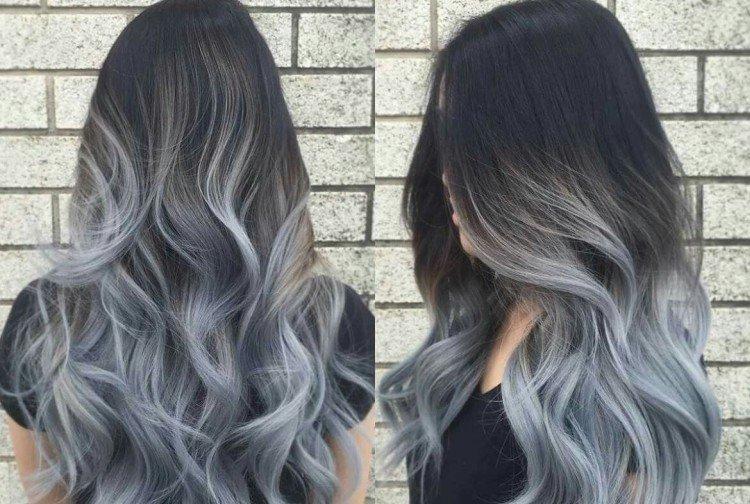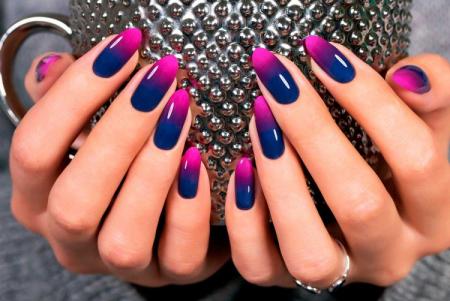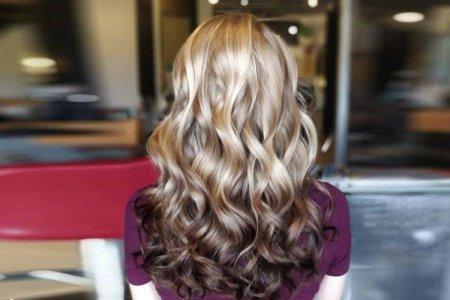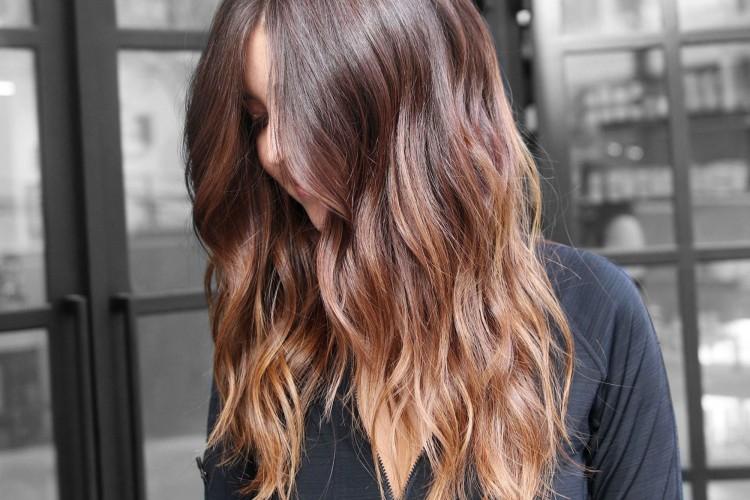
Boring monochromatic stains have long been out of fashion, and so far they do not strive to return to it. But beautiful transitions and gradients are very relevant. The ombre technique is based on them, which looks so attractive on dark hair!
1. Ombre with a stretch
It is this coloring that is most often implied when they talk about ombre, and the classics do not lose their relevance. The main thing is that the transition from dark to light is as smooth and blurry as possible.
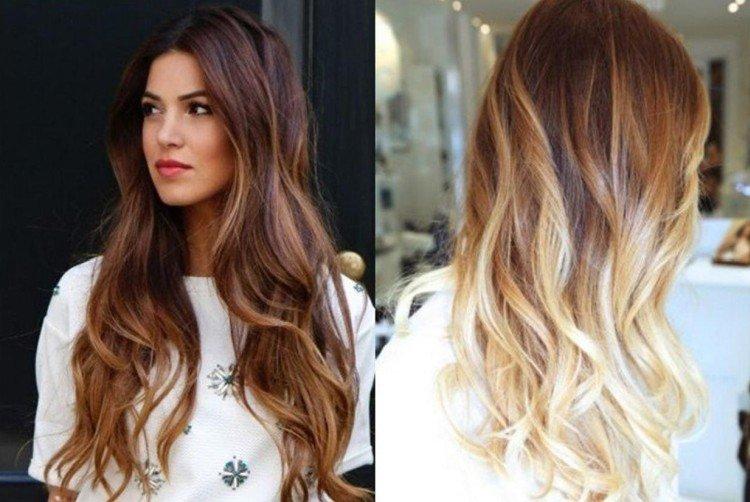
2. Ombre with a clear border
This technique differs from the classic by a sharper and more pronounced transition line. But any shades are used - both contrasting and adjacent. By the same principle, they create a fashionable effect of regrown roots.
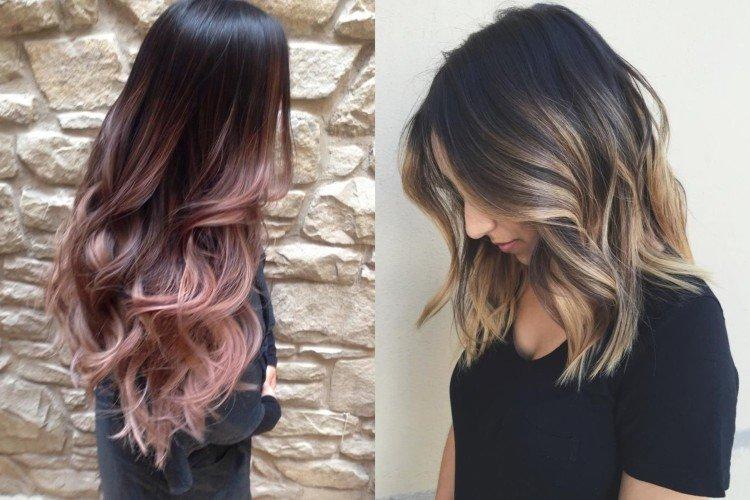
3. Tortoiseshell ombre
This is a complex transition technique with a lot of shades. The whole gamut of tortoiseshell is used - from golden honey and ash beige to chocolate, coffee and nut shells.
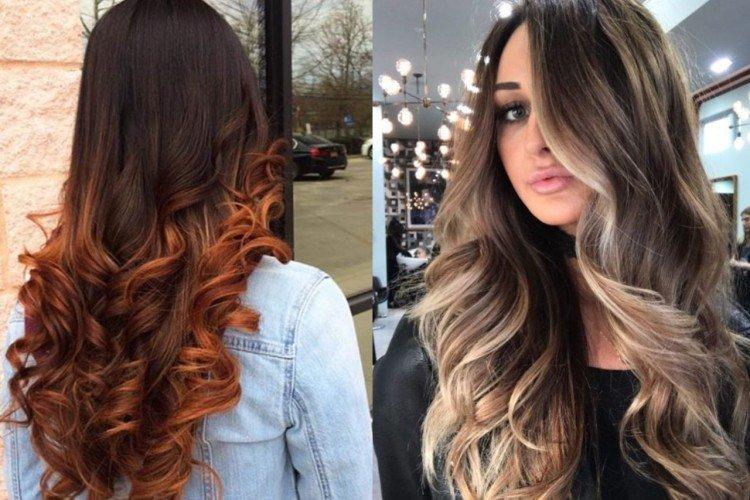
4. Contour ombre
An option is gaining popularity when not only the ends, but also the strands around the face are painted in light. This technique allows you to visually adjust and harmonize features, like contouring in makeup.
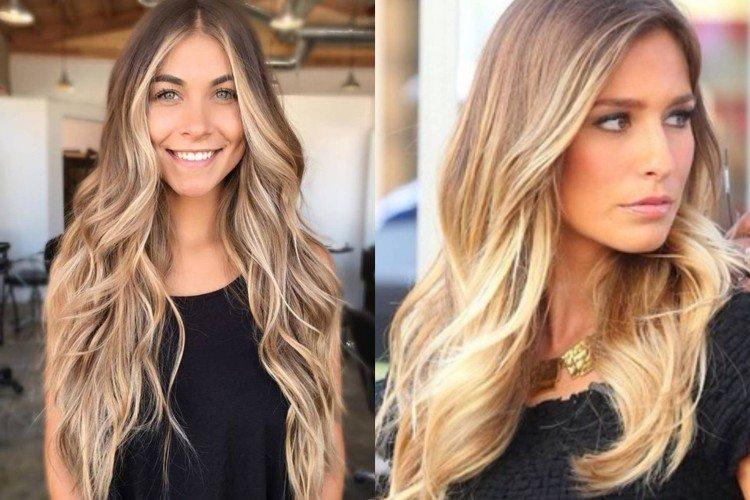
5. Ombre for brunettes
You don't want to burn black hair with strong lightening, but you can make a less contrasting stretch. For example, in coffee, nut or cognac shades.
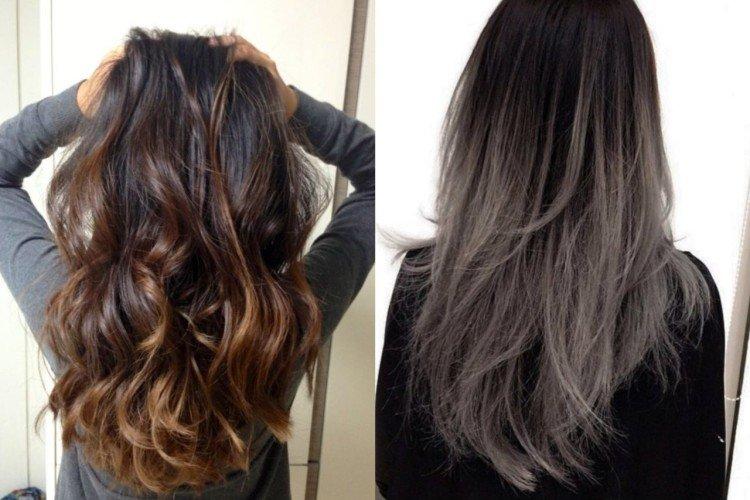
6. Ombre with booking
Unlike blond, bronde involves the use of lighter, but close to natural shades. The result is a very soft, pleasant and natural effect.
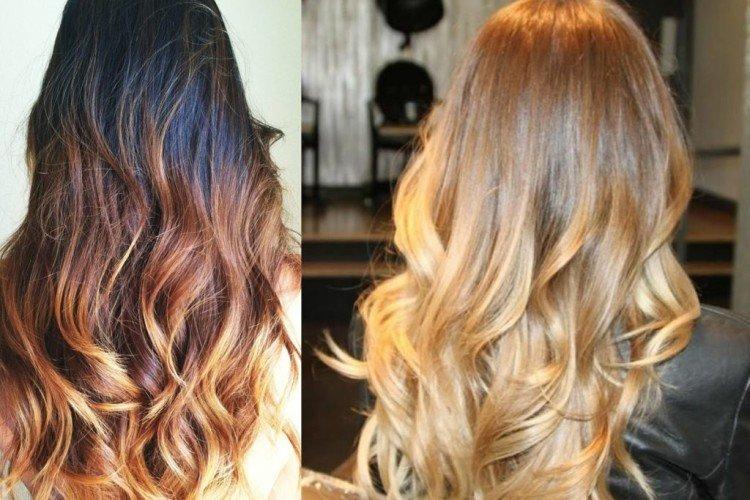
7. Natural ombre
At its core, natural ombre is close to ombre with bronzing, but even more adjacent shades are selected here. At first glance and with an inexperienced eye, the transition may not be noticed at all, but the hair looks much livelier and more beautiful.
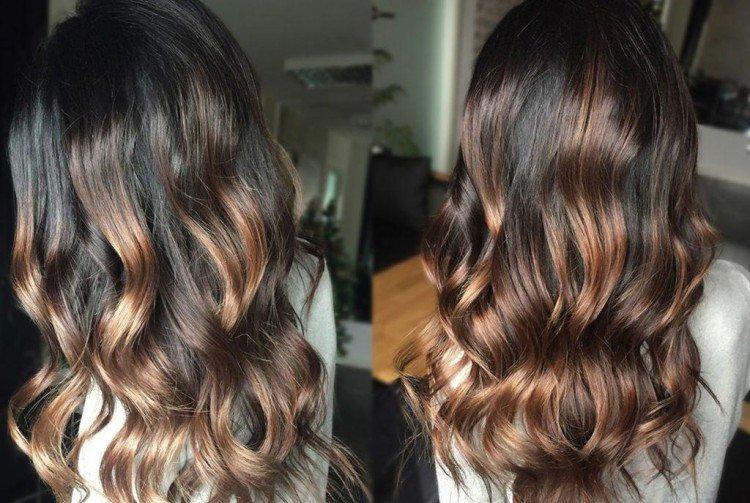
8. Soft ombre
Another soft technique will appeal to fans of sophisticated and sophisticated looks. This is a good option for dark hair with a warm brown tint, complemented by honey or golden highlights.
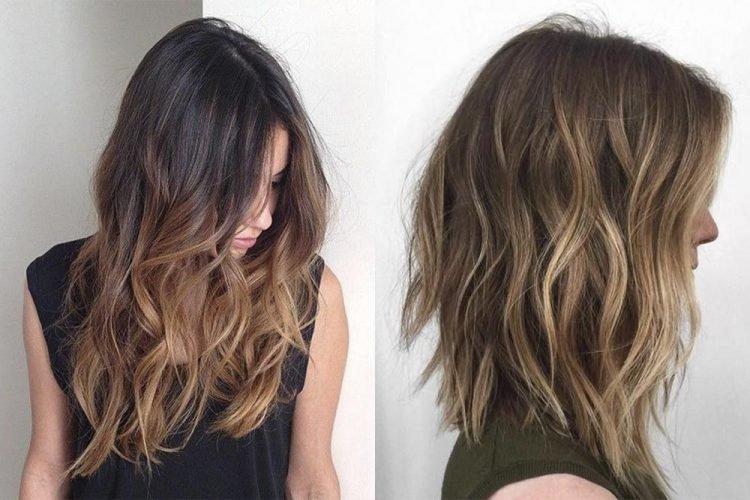
9. Ombre balayage
The master combines a soft stretch from the roots with balayage, in which individual light strands are clearly visible. The closer to the tips, the more intense and brighter they become.
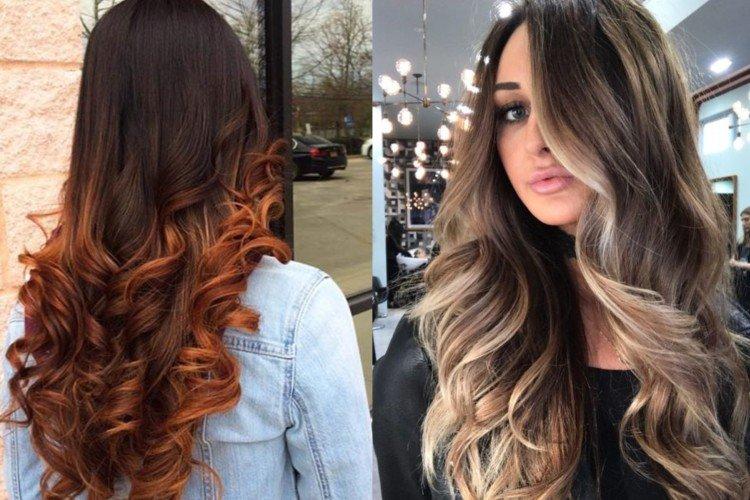
10. Contrast ombre
A rather extreme option involves stretching from dark roots to blond. But keep in mind that here you need an impressive hair length and careful care for restoration.
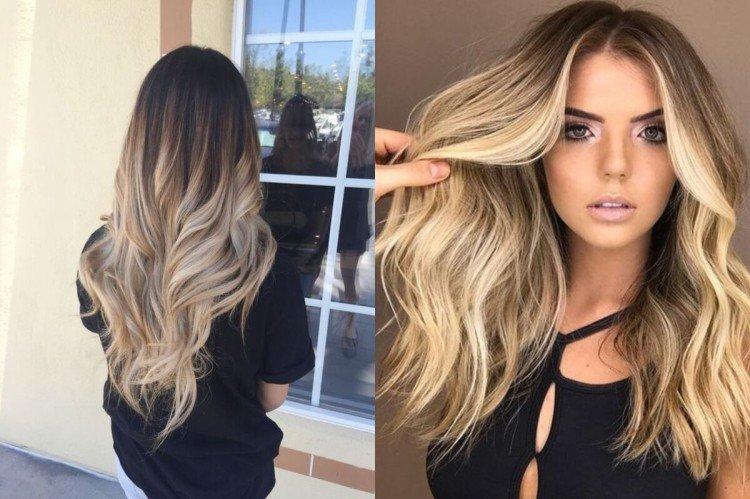
11. Colored ombre
Lovers of experimentation and informal looks appreciated the color ombre for dark hair. There is only one unspoken rule here: warm tones with warm ones, and cold tones with cold ones.
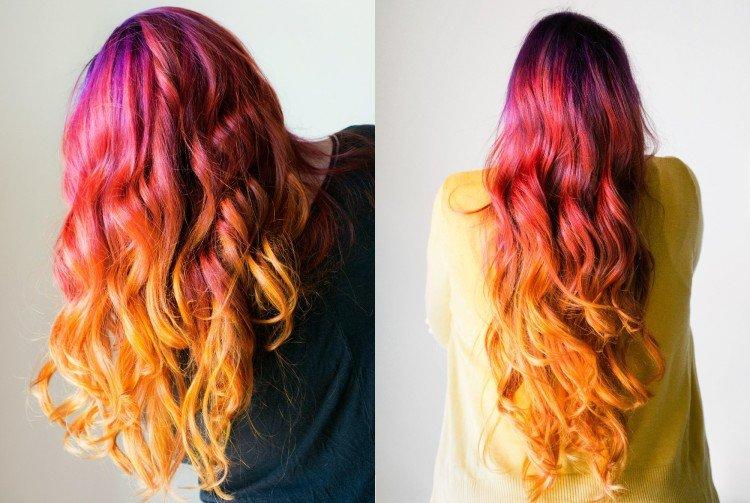
12. Ash ombre
For brunettes with a cold color type, the transition to ash gray is ideal. And for a warm color type, there are very spectacular ash-beige shades.
